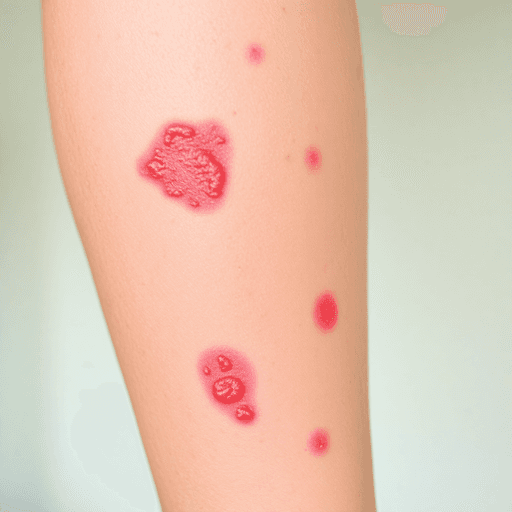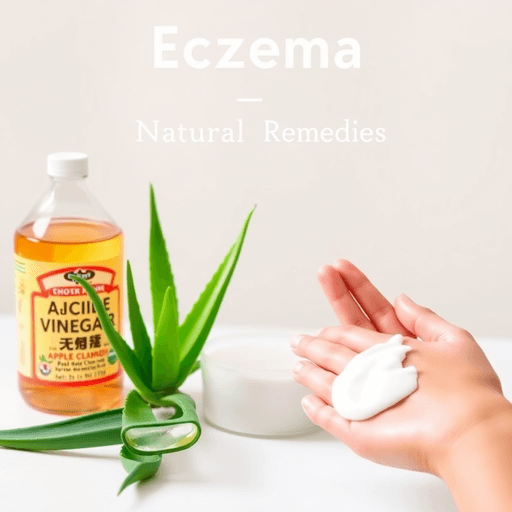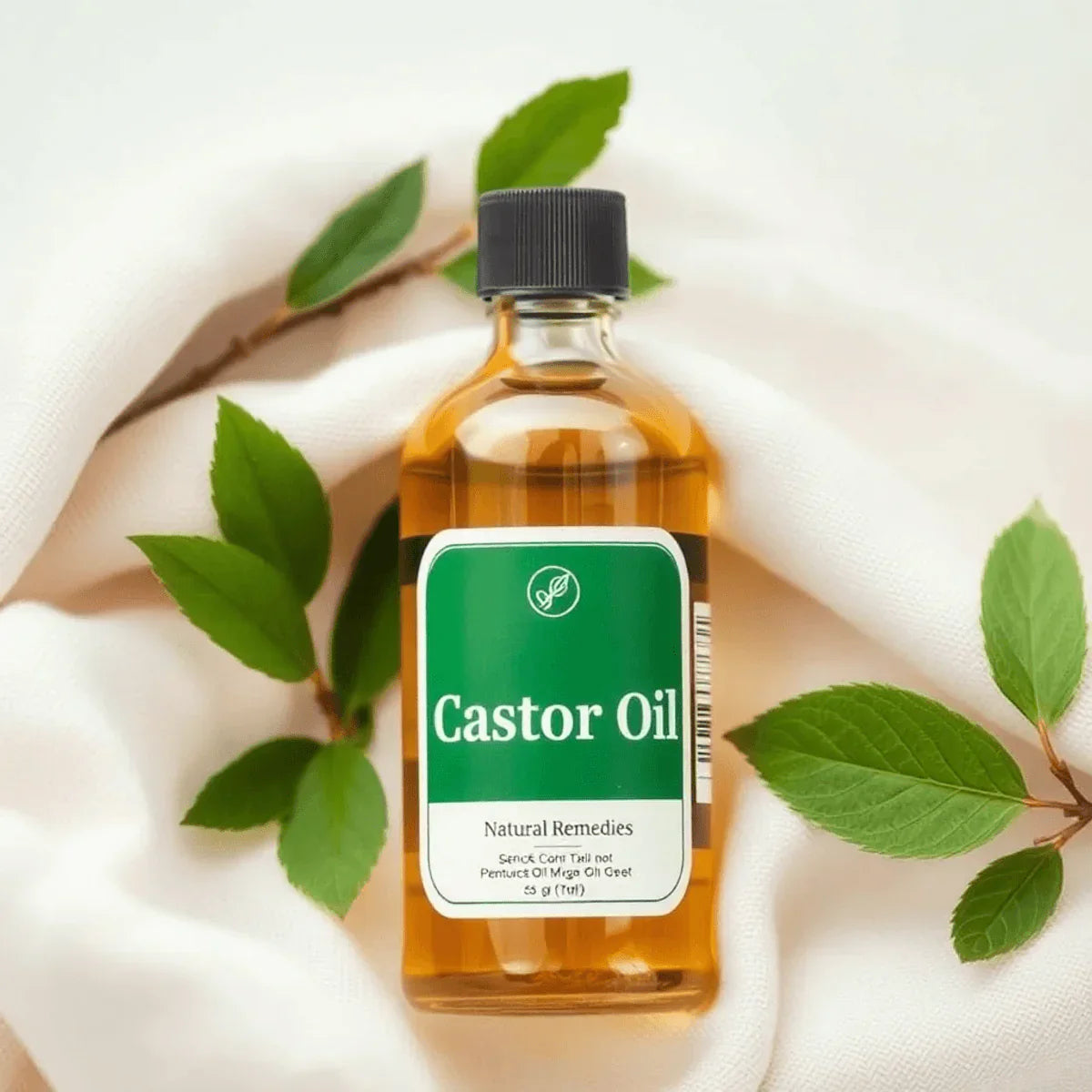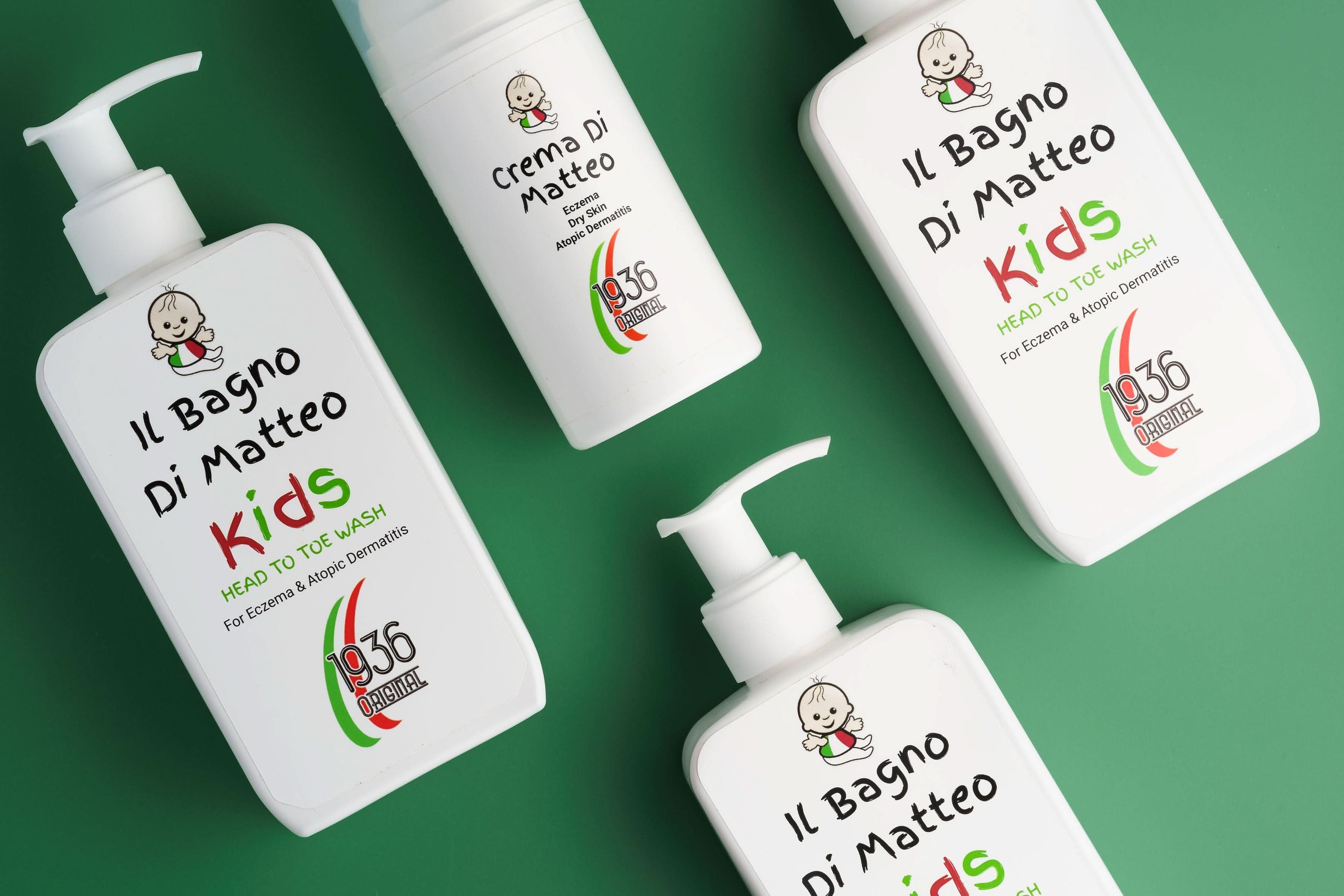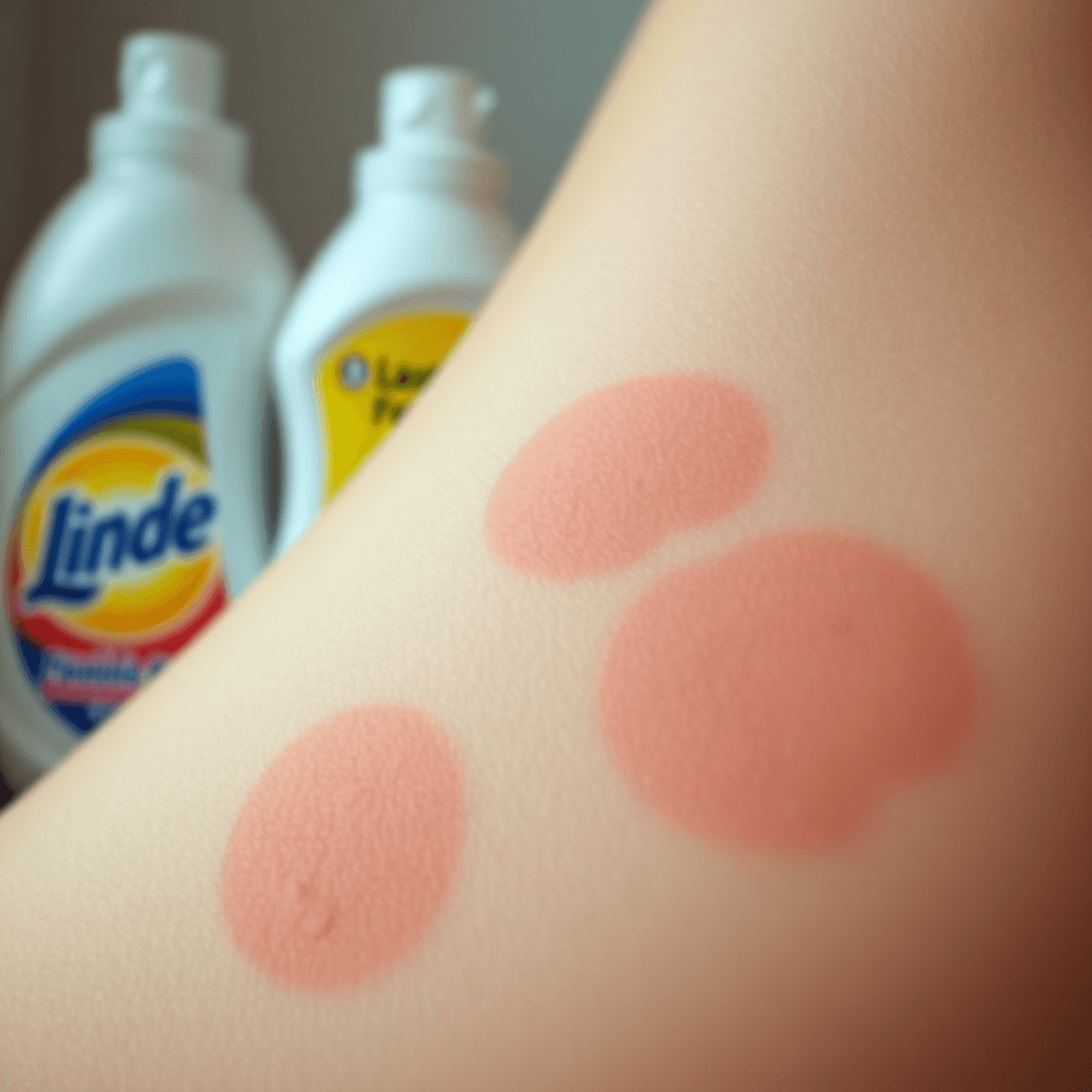Eczema Relief: Discover the Number One Remedy That Works

Introduction
Eczema, also known as dermatitis or atopic dermatitis, is a common skin condition that causes significant discomfort. It is characterized by extremely dry skin, red rashes, and intense itching, affecting many people around the world. This condition not only affects the skin but can also lead to a lower quality of life due to its persistent symptoms.
Understanding and managing eczema can be difficult, especially when traditional treatments provide limited relief. However, the number one remedy for eczema has emerged as a source of hope for those seeking effective solutions beyond conventional methods.
This article explores this incredible remedy that promises to relieve eczema symptoms. By looking into natural approaches with proven results, you'll learn how to improve your skin's health and regain comfort in your everyday life.
Understanding Eczema
Eczema, also known as atopic dermatitis, is a common skin condition that affects many individuals across the globe. This condition is characterized by an array of uncomfortable symptoms that can significantly impact daily life.
Common Symptoms:
- Dryness: The skin often becomes extremely dry, leading to flakiness and rough patches.
- Redness: Affected areas may appear red and inflamed, causing discomfort and self-consciousness.
- Intense Itching: Perhaps the most distressing symptom, itching can be relentless and lead to further skin damage from scratching.
Despite its prevalence, traditional medicine has yet to pinpoint definitive causes or cures for eczema. Medical literature often describes it as a condition with "no known cause and no known cure," leaving sufferers searching for effective management strategies. This lack of clarity in conventional treatments underscores the need for alternative approaches that go beyond merely addressing symptoms.
Individuals with eczema may find themselves relying on treatments like topical steroids to manage flare-ups. However, these remedies often come with potential side effects and do not tackle the underlying factors contributing to the condition. This highlights the importance of exploring new avenues in eczema management, particularly those that focus on enhancing overall skin health and addressing potential nutritional deficiencies.
Understanding eczema requires a holistic perspective that considers both environmental influences and genetic predispositions. By delving into these aspects, one can better navigate the complexities of this challenging skin condition.
For a more comprehensive understanding of atopic eczema including its causes, symptoms, and treatment options, it's essential to explore available resources. Moreover, if you're seeking effective solutions for managing eczema symptoms, consider trying some specialized products designed for eczema treatment. These products aim to provide relief from Eczema, Atopic Dermatitis & Psoriasis while being suitable for all ages including babies and children.
The Limitations of Conventional Treatments for Eczema
Steroid treatments are frequently prescribed for eczema management due to their ability to reduce inflammation and suppress immune responses. These medications can provide temporary relief from the intense itching and redness associated with eczema. However, they come with significant drawbacks.
Potential Side Effects
Long-term use of steroid creams can lead to various side effects, including:
- Skin thinning
- Increased susceptibility to infections
- Potential hormonal imbalances
These adverse effects often make continuous steroid use a risky option for many individuals.
Limitations of Steroids
While steroids address the symptoms of eczema, they do not tackle the underlying factors that contribute to flare-ups. This is a crucial limitation, as it means that once the medication is stopped, symptoms often return. Relying solely on such conventional treatments may lead to a cycle of dependency without providing lasting relief.
A more holistic approach is necessary—one that considers dietary deficiencies, genetic predispositions, and environmental triggers. This comprehensive strategy could offer more sustainable solutions for managing eczema effectively. Embracing alternatives that focus on these root causes might pave the way for more profound and enduring relief from this chronic condition.
The Power of Essential Fatty Acids in Eczema Relief
How Essential Fatty Acids Benefit Your Skin
Essential fatty acids are crucial for maintaining the skin's barrier function, which is important for keeping moisture in and protecting against irritants. Since the body cannot produce these fatty acids on its own, it is necessary to obtain them through diet or supplements. They are essential for keeping the skin hydrated and healthy.
The Benefits of Gamma-Linolenic Acid (GLA) for Eczema
One type of essential fatty acid that is especially beneficial for people with eczema is gamma-linolenic acid (GLA). GLA, an omega-6 fatty acid, has shown promise in reducing inflammation—a common trigger for eczema flare-ups. It helps the skin heal and maintain its protective barrier, relieving symptoms such as redness and itching.
The Role of Omega-3 Fatty Acids in Eczema Treatment
In addition to GLA, omega-3 fatty acids also have anti-inflammatory properties that can further soothe eczema symptoms. When combined, these two types of fatty acids create a powerful combination that addresses both internal and external factors affecting skin health.
The number one remedy for eczema often involves using these essential fatty acids' benefits, providing a natural approach that complements traditional treatments. This holistic strategy focuses on addressing underlying deficiencies and improving overall skin resilience.
Understanding the Genetic Factors that Make Some People More Likely to Get Eczema
Eczema is a complex condition with a genetic backdrop that increases susceptibility in certain individuals. Genetics play a crucial role, where specific genes are involved in regulating immune responses and maintaining skin health. These genetic factors can make some people more likely to get eczema by affecting how their skin works and reacts to things in their environment.
How Genes Can Affect Eczema
Some people have genetic variations that make it difficult for them to turn essential fatty acids into forms that are important for healthy skin. This difficulty can lead to a weak skin barrier and increased inflammation, which are both signs of eczema.
The Role of Epigenetics in Eczema
Epigenetic factors also play a big part, as they involve changes in how genes work caused by things like the environment and lifestyle choices. These changes can affect how genes related to eczema are expressed without actually changing the DNA itself. Things like diet, stress levels, and exposure to allergens or pollutants can influence these epigenetic changes, which in turn can impact how severe and frequent eczema flare-ups are.
Why This Matters for Eczema Treatment
Understanding these genetic and epigenetic factors shows us why it's important to have personalized approaches when it comes to treating eczema. By looking at both the genetic predispositions that can't be changed and the lifestyle factors that can be modified, we can come up with more effective strategies for people who are dealing with this stubborn skin condition.
Introducing Black Currant Seed Oil: A Potent Remedy for Eczema Relief
Black currant seed oil is emerging as a natural remedy gaining traction among eczema sufferers. Its rich content of gamma-linolenic acid (GLA) and anti-inflammatory properties make it an attractive option for those seeking alternative treatments. Research indicates that black currant seed oil contains two to three times more GLA than evening primrose oil, which was previously known for its GLA concentration.
Key Benefits of Black Currant Seed Oil:
- High GLA Source: Gamma-linolenic acid plays a crucial role in reducing inflammation and supporting skin health, addressing some root causes of eczema symptoms.
- Anti-inflammatory Properties: The presence of thymoquinone and lauric acid in black currant seed oil aids in decreasing skin inflammation and microbial infections, offering additional skin protection.
Comparison with Evening Primrose Oil:
- While evening primrose oil has been recognized for its GLA levels, black currant seed oil surpasses it by providing a significantly higher concentration of this essential fatty acid.
- Its superior efficacy is backed by studies showing black currant seed oil's effectiveness comparable to steroid creams and exceeding other common treatments like Eucerin cream.
By using black currant seed oil, individuals with eczema can explore a promising natural alternative that targets the condition from multiple angles.
How to Use Black Currant Seed Oil for Optimal Eczema Relief
Black currant seed oil stands out as the number one remedy for eczema, offering a natural approach to soothe and heal irritated skin. Its application method plays a crucial role in maximizing its benefits. Here’s how you can incorporate this powerful remedy into your routine:
Topical Application Method
- Prepare the Oil: Start with five drops of black currant seed oil. Place them in your hands.
- Warm the Oil: Rub your hands together gently to warm the oil. This step enhances absorption and efficacy.
- Apply to Skin: Gently massage the warmed oil onto affected areas of your skin. Ensure an even distribution for optimal results.
Internal Supplementation Guidelines
To complement topical use, consider internal supplementation of black currant seed oil:
- Dosage Forms: Choose between pearls or liquid drops.
- Consumption:
- Pearls: Follow the dosage instructions provided on the packaging.
- Drops: Add a few drops to a glass of water and drink. While the taste might be unfamiliar, it’s a convenient option.
Integrating black currant seed oil both topically and internally can significantly enhance its soothing effects on eczema-prone skin, leveraging its rich gamma-linolenic acid (GLA) content for comprehensive relief.
Research Supporting the Effectiveness of Black Currant Seed Oil in Eczema Management
Clinical studies have shown promising effects of black currant seed oil in managing eczema. This natural remedy is known for its high content of gamma-linolenic acid (GLA), which has been shown to significantly reduce eczema severity and improve skin health. The anti-inflammatory properties of GLA are important in relieving symptoms such as dryness, redness, and itchiness.
Comparison with Conventional Treatments
A significant comparison between black currant seed oil and traditional treatments shows its potential benefits. Research indicates that black currant seed oil may be as effective as steroid creams, which are commonly prescribed for eczema but can have side effects like thinning skin. In some studies, black currant seed oil has also been found to be more effective than popular moisturizers like Eucerin cream.
Additional Beneficial Compounds
In addition to GLA, black currant seed oil contains other beneficial compounds such as omega-3 fatty acids and thymoquinone. These components further enhance its therapeutic value by improving immune response and reducing inflammation. This makes black currant seed oil a possible alternative or complementary option for those looking for natural remedies for eczema relief.
Embracing Natural Remedies for Eczema Management: The Potential Benefits of Black Currant Seed Oil as a Topical Treatment Option
In the search for effective eczema management, natural remedies like black currant seed oil show promise. This oil, high in gamma-linolenic acid (GLA), stands out as the top remedy for eczema, offering significant relief from symptoms such as dryness, redness, and itching.
How Black Currant Seed Oil Works
The natural compounds in black currant seed oil—including thymoquinone and lauric acid—work together to:
- Reduce inflammation
- Strengthen the skin's immune defenses
These properties not only ease current discomfort but also promote healthier skin barrier function over time.
A Holistic Approach to Eczema Management
For those looking for an alternative to traditional treatments with potential side effects, adding black currant seed oil into your skincare routine may offer a more holistic approach. Whether used topically or taken as a supplement, this natural remedy could be an important part of managing eczema effectively and naturally.
FAQs (Frequently Asked Questions)
What is eczema and what are its common symptoms?
Eczema, also known as atopic dermatitis, is a common skin condition characterized by extreme dryness and inflammation. Common symptoms include dry, flaky skin, intense itching, redness, and sometimes oozing or crusting.
What are the limitations of conventional treatments for eczema?
Conventional treatments for eczema often rely on steroid creams which manage symptoms but do not address the underlying causes. Long-term use of these steroids can lead to various side effects such as skin thinning and increased risk of infections.
How do essential fatty acids benefit the skin in relation to eczema?
Essential fatty acids are crucial for maintaining the skin's barrier function and hydration. They help reduce inflammation and support overall skin health, making them beneficial for individuals suffering from eczema.
What role does black currant seed oil play in eczema relief?
Black currant seed oil is emerging as a potent natural remedy for eczema relief due to its high content of gamma-linolenic acid (GLA). GLA plays a crucial role in managing inflammation and improving skin barrier function.
How should black currant seed oil be used for optimal eczema relief?
For optimal results, black currant seed oil can be applied topically by preparing five drops and massaging it into affected areas. Additionally, internal supplementation may enhance its effectiveness in managing eczema symptoms.
What evidence supports the effectiveness of black currant seed oil in managing eczema?
Clinical studies have shown promising effects of black currant seed oil in reducing symptoms of eczema. Research indicates that it may be more effective than some conventional treatments by addressing both inflammation and skin barrier issues.


